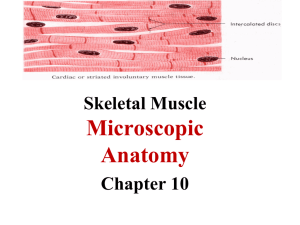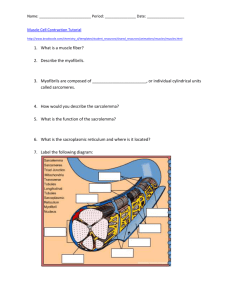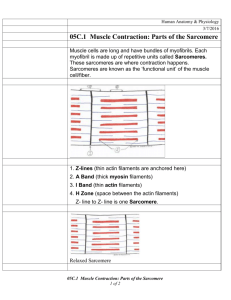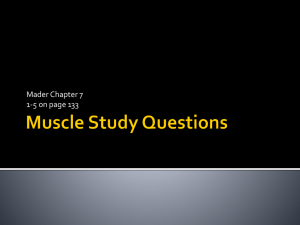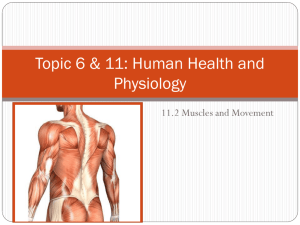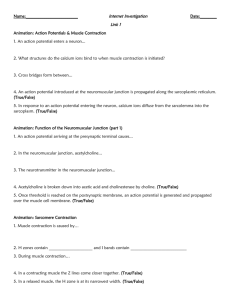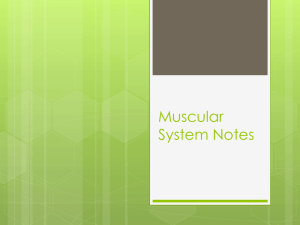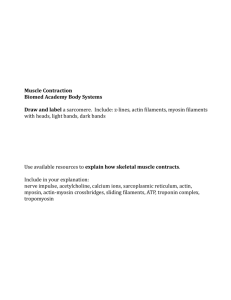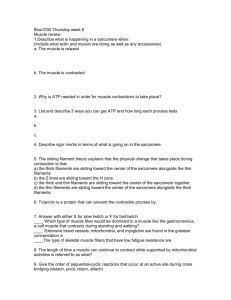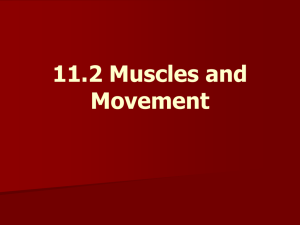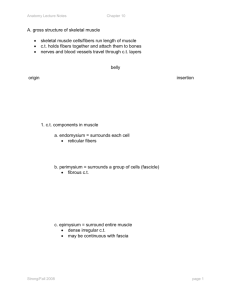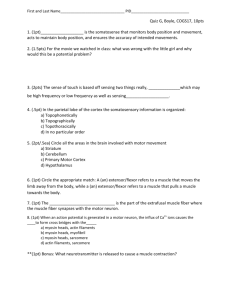Muscle Contraction Worksheet: Anatomy & Physiology
advertisement
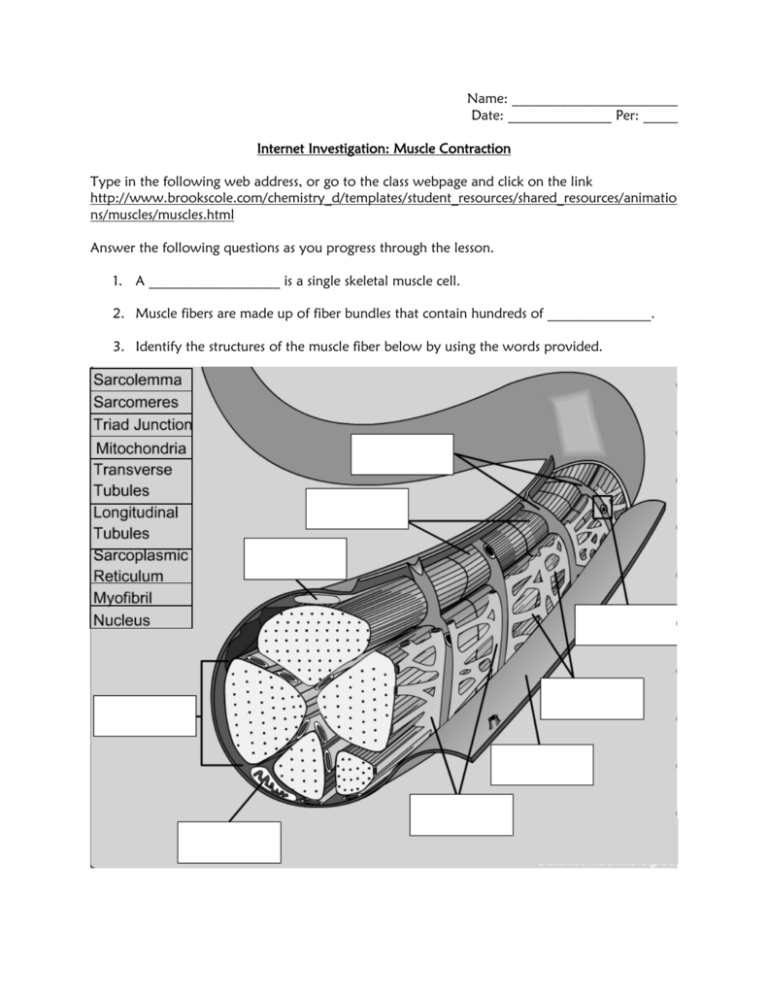
Name: ________________________ Date: _______________ Per: _____ Internet Investigation: Muscle Contraction Type in the following web address, or go to the class webpage and click on the link http://www.brookscole.com/chemistry_d/templates/student_resources/shared_resources/animatio ns/muscles/muscles.html Answer the following questions as you progress through the lesson. 1. A ___________________ is a single skeletal muscle cell. 2. Muscle fibers are made up of fiber bundles that contain hundreds of _______________. 3. Identify the structures of the muscle fiber below by using the words provided. A. B. C. D. Sarcolemma Sarcomeres Triad junction Mitochondria E. Transverse tubules F. Longitudinal tubules G. Sarcoplasmic reticulum H. Myofibril I. nucleus 4. Use the word bank above to match the descriptions with the correct muscle fiber structure. (Not all words will be used) ______ i. Composed of a T-tubule, the terminal cisternae, and gaps. ______ ii. Cylindrical structures that carry out contraction ______ iii. Extensions of the sarcolemma that separate the sarcomeres ______ iv. Specialized plasma membrane of the skeletal muscle cell; forms membrane connections between each of the sarcomeres. ______ v. The specialized endoplasmic reticulum of the skeletal muscle cell ______ vi. Units of the myofibrils 5. Identify the parts of the sarcomere below by using the words provided. You may write the whole word or just the letter. A. M line B. Thick Filaments C. Thin Filaments D. Z Line 1. Use the word bank above to match the descriptions with the correct muscle fiber structure. (Not all words will be used) ______ i. The bands that mark the sarcomere’s borders ______ ii. The bands that mark the middle of the sarcomere ______ iii. Under a micrograph, they are the lightest and least dense structures; composed of actin, troponin, tropomyosin ______ iv. Much more dense than thin filaments; composed of myosin 2. Who were the contributing scientists that discovered how muscle contraction worked? 3. The distance between the ends of the thin filaments was known as ______________. 4. The distance between the thick filaments of one sarcomere and the thick filaments of an adjacent sarcomere was known as the _____________. 5. The length of the thick filaments was known as the _______________. 6. Identify the areas in the following picture below 1_______________ 2______________ 1 2 3______________ 3 7. The ____________ and ___________ shortens, but the ____________ does not shorten during muscle contraction. 8. Chemically, muscle contraction is driven by ______________________ and triggered by the release of _______ from the sarcoplasmic reticulum. 9. Ca2+ binds to ____________________ in the thin filaments, exposing the myosin binding sites on actin. 10. The movement where the myosin head pulls the thin filaments inward is called the ________________________. 11. Place the following events in order by placing a number (1-6): _______ Power stroke (ADP and P dissociate from myosin). _______ Thin filament returns to relaxed state _______ Ca2+ binds troponin causing a conformational change of the thin filament _______ Myosin heads bind to actin _______ Electrochemical signal causes release of Ca2+ from sarcoplasmic reticulum _______ ATP binds myosin head
